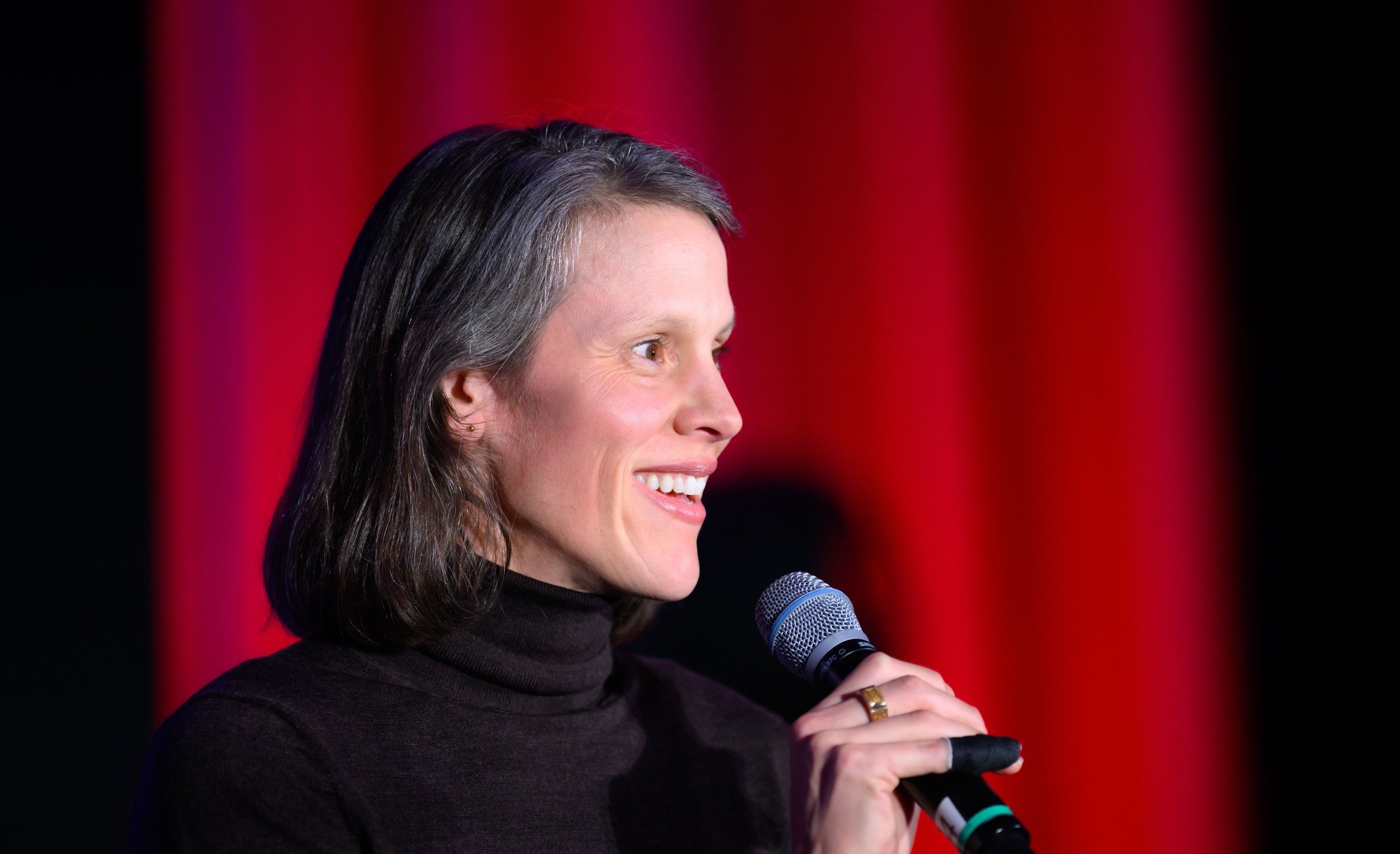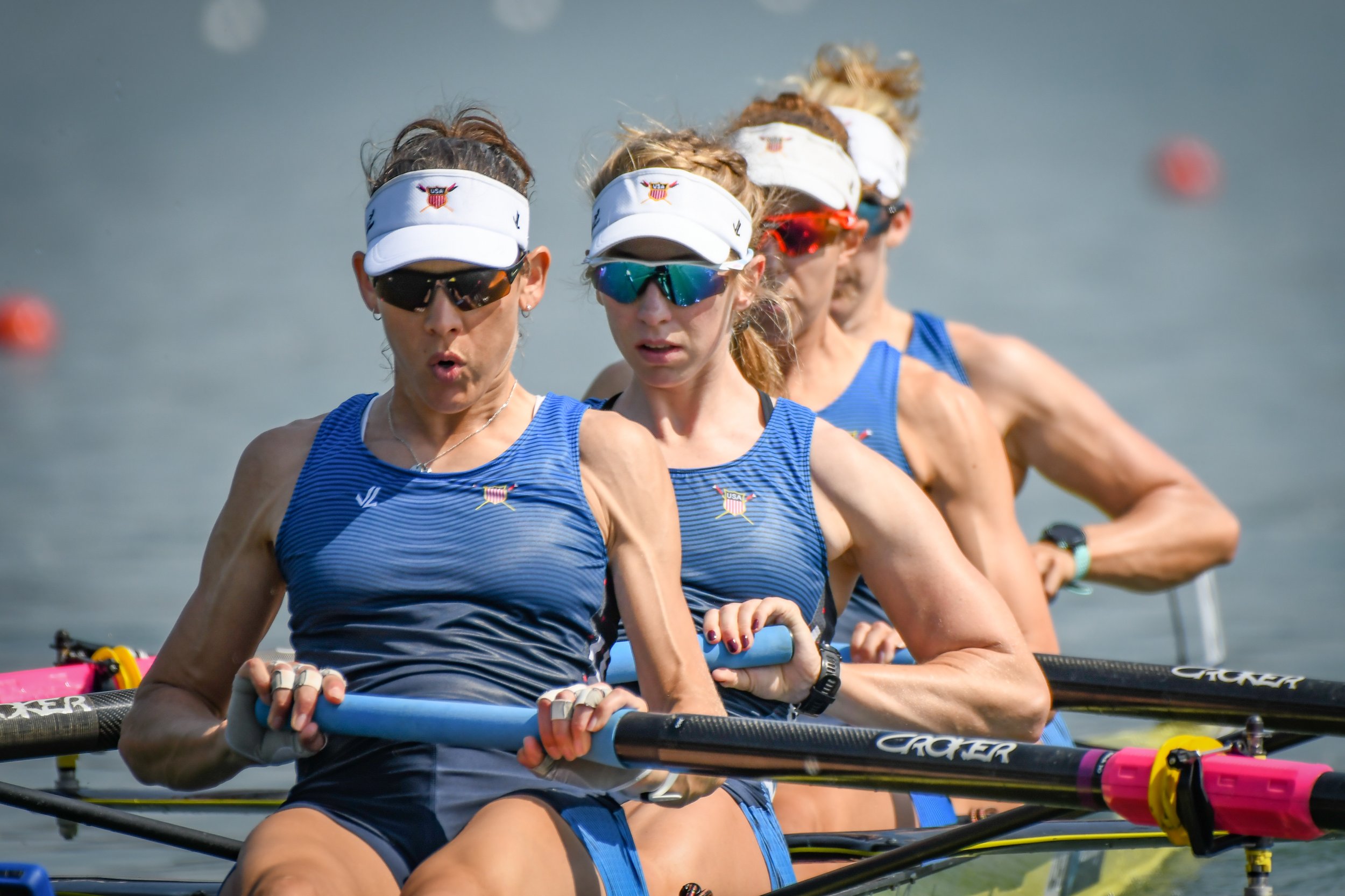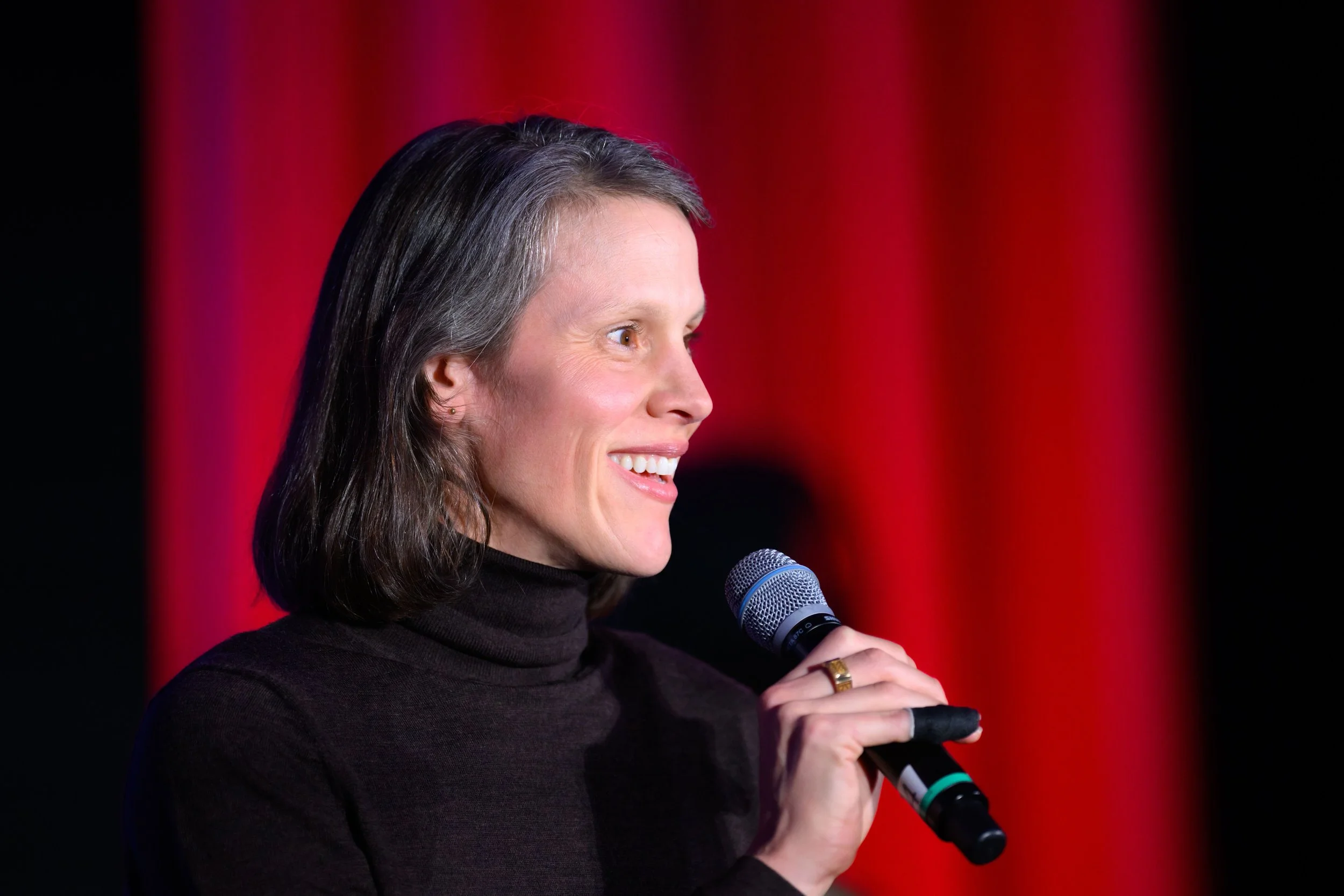
“Authentic.”
“Fantastic
storyteller.”
“WOW!”

See Caryn in action…
I’m here to help your organization thrive.
As a two-time Olympic champion in rowing and the founder of Podium Law, I know that podiums exist only in the highest-stakes arenas—in the moments that matter. In these moments, you need a leader who knows how to get a team working together. That’s where I come in.
I help teams achieve and sustain peak performance. I share my insights via keynotes, workshops, guest lectures, and podcasts, focusing on topics such as team-building, motivation, resilience, compassion, and belonging. I have worked with audiences from various industries and backgrounds, ranging from Fortune 500 companies to universities and nonprofit organizations.
What people are saying…











